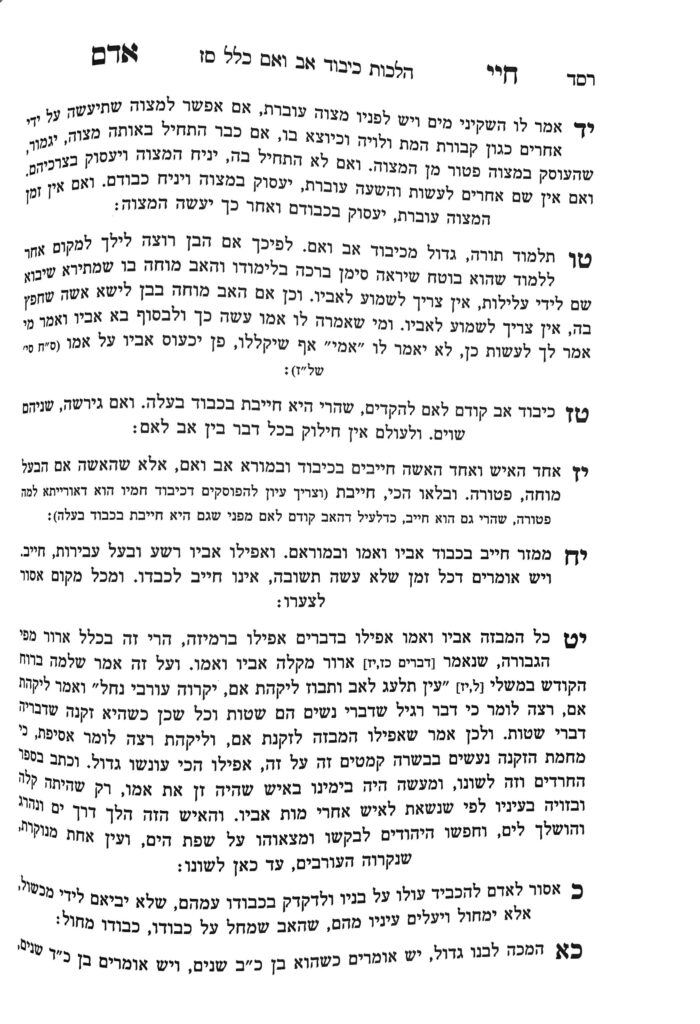We are beginning siman 20, where the Chayei Adam turns to the parents, and discusses overburdening a child in a manner which makes their kibud av v’eim difficult.
The Chayei Adam writes that it is assur for a parent to be overburneding on a child and require every extent of kavod from the child, because it will create a michshol (stumbling block) for the child who will be unable to fulfill every element of kibud. Rather, a parent should forgive or ignore their child’s errors. Chazal teach us that av she’mochal al kevodo, kevodo machul, that a parent is able to be mochel on their kavod if they wish to do so. A parent should recognize that kibud av v’eim is a difficult mitzvah to perform (as they themselves may remember from their parents), and should look the other way or be mochel when their children are not able to fulfill it in its entirety. In this manner, they can save their child from having transgressed the mitzvah when they do not fulfill it. On the other hand, a parent should not be mochel on their kavod completely, because the child should still try their utmost to perform this important mitzvah, but a parent should find the flexibility and leeway when a child cannot fulfill the mitzvah in its entirety.
The Chayei Adam takes this concept a step further in siman 21. We have learned (shiurim 1263-1264) about the concept of corporal punishment, and how it was properly and effectively employed in previous generations. Even for those generations, the Chayei Adam writes that once a child is a gadol, a parent should no longer employ corporal punishment.
The Chayei Adam brings two opinions regarding when a child becomes a gadol: 22 or 14. However, the Chayei Adam himself adds that in his opinion, it depends on the child. From the age at which the child will not stand by idly to a parent hitting them–whether due to the child’s nature or due to the nature of society around the child– a parent should no longer hit the child. The child will be tempted to respond by hitting the parent, and if so, the parent has transgressed lifnei iver by putting the child in a situation in which they will transgress an issur. The Chayei Adam concludes that the parent is put in nidui (a form of cherem) for having hit the child from that age.
Let’s clarify the chidush that the chayei Adam is saying here. Clearly, the father has no interest in enticing the child to hit him. Nevertheless, we see that lifnei iver is not just when one entices someone with the hope of eliciting a negative response (as we often picture lifnei iver), but even when one simply abets the transgression of an aveirah, even when it is not their intent.
Summary
It is assur for a parent to be overburdening on a child in a way that causes them to transgress the mitzvah of kibud av v’eim. Rather, the parent should be mochel or ignore any transgressions to their kavod.
Similarly, a parent should not hit their child if they know it will solicit a negative response from the child.



